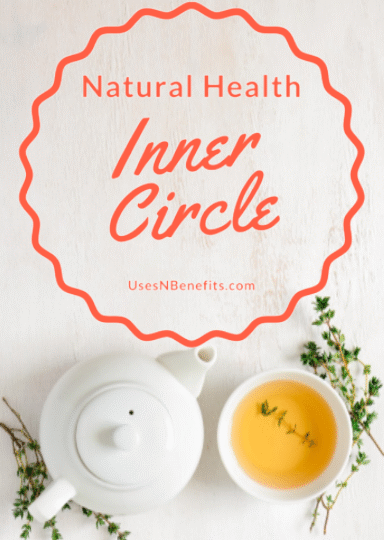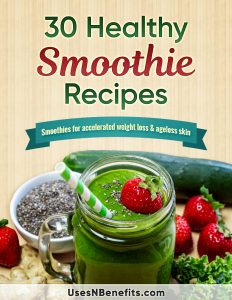When you reach into your cupboard for a delicious spice to add to your cakes, puddings and smoothies, chances are you’ll be reaching for cinnamon. It’s been around for thousands of years and is one of the most popular spices throughout the world, particularly in the East, not only for its flavor enhancing qualities but for its medicinal properties.
Cinnamon has been studied for a number of health related issues including diabetes and blood sugar, cholesterol, fungal infections, indigestion and nausea, bad breath, and even headaches and hangovers. Here’s how it can help you:
1. Bad Breath
Halitosis or oral malodor can be caused by a number of things, but illness or disease aside, the most common reason for bad breath is bacteria in the mouth – on the gums, tongue and teeth. This foodborne bacteria produces sulfur compounds that get into the tiny spaces under the gums, and even the most advanced toothbrushes can’t reach them.
Before you reach for a product from the store shelves to freshen your breath, consider trying a more natural approach – cinnamon.

- “Morning breath” is the result of a slowdown in saliva production during the night, and oral pH levels shift from acidic to alkaline. Using a natural mouth rinse that contains cinnamon essential oil works as well as a store bought mouthwash. Most of these products are alcohol based and you can make your own by steeping essential oils and herbs in cheap vodka. Try adding spearmint, rosemary, fennel, or peppermint to your cinnamon mix.
- In a pinch, chew on gum that contains the essential oil cinnamic aldehyde. It will actually eliminate mouth odors because it kills the bacteria that causes bad breath.
2. Diabetes and Blood Sugar
As little as 1/2 teaspoon of powdered cinnamon a day may help decrease blood sugar levels and other risk factors in people with diabetes. In volunteers taking this dosage every day for 40 days, the results showed a 20 percent improvement in blood sugar, cholesterol and triglyceride levels. When the volunteers stopped taking cinnamon, their blood sugar levels began to rise again.
Methylhydroxy chalcone polymer (MHCP) is the flavonoid compound responsible for activating the insulin receptors that take in blood sugar for energy. Its unique impact on blood sugar has been shown to be comparable to the diabetes medication rosiglitazone (Avandia) without the heart-damaging side effects.
A 1/2 teaspoon a day isn’t much. You can sprinkle it on your morning cereal or in a smoothie. Try making cinnamon butter or sprinkle it into warmed apple slices. Cinnamon toast, cocoa and pudding are other great ways to get cinnamon into your diet. You can even mix it into your meatloaf mixture before baking. Heat will not destroy it properties.
3. Cholesterol
MHCP works on blood lipid levels (LDL, HDL and triglycerides) which means it can reduce your total cholesterol. Even if you stop eating cinnamon for a while, the sustained effect will continue for several weeks.
4. Fungal Infection
Along with every other spice, cinnamon was used to preserve foods in the days before refrigeration was invented. Most spices are good antiseptics and were used for their antifungal properties as much as for their flavor. Cinnamon contains more than 2 dozen antiseptic compounds, many of them fungicidal. It’s particularly lethal against foodborne bacteria such as E. coli. In fact, cinnamon’s antimicrobial abilities are so powerful that some food manufacturers are experimenting with cinnamon-infused packaging to prevent invasions of dangerous microbes.
5. Hangovers and Headaches
Cinnamon contains several stomach-settling compounds along with almost a dozen pain relievers. Drinking cinnamon tea after a big night out will fend off that morning hangover.
6. Indigestion, Nausea and Gas
Chinese healers use cinnamon to treat a wide variety of gastrointestinal disorders, including indigestion, gastritis and even gastric cancer. Cinnamon soothes the digestive tract and minimizes gas. It contains camphor, an antiemetic, and 2 carminatives – eugenol and safrole. Plus the catechins in cinnamon are what help relieve nausea.
Drink cinnamon tea for occasional heartburn or acid indigestion, and try cinnamon toast or tea for morning sickness.
7. Insect Bites and Stings
Pure cinnamon helps kill mosquito larvae and acts as an insect repellent at the same time. To make your own natural insect repellent, add a few drops of cinnamon oil to your fragrance-free lotion or sunscreen. You’ll only need a few drops, enough so you can just begin to smell the cinnamon over the other ingredients.
8. Inflammation
Chronic inflammation is at the root of many of our modern degenerative and autoimmune diseases such as arthritis, heart disease, cancer, Parkinson’s, Alzheimer’s, MS, and even asthma. Cinnamic aldehyde plays an important role in the reduction of inflammation by targeting inflammatory pathways and reducing inflammation so cells can operate properly.
9. Weight Loss
Cinnamon works to reduce blood sugar, which is why it’s so important to diabetics, and in the same way, it works to balance blood sugar in healthy individuals. You lose weight because your body is responding correctly to glucose after you eat a meal. You won’t experience elevated blood sugar and your body won’t store excess calories as fat. Cinnamon acts as a moderator for sugar spikes and you’ll feel less hungry.
10. Anti-Carcinogenic
Cinnamic aldehyde retards the growth of cancer cells, particularly in the colon and liver. And cinnamon’s fiber enhances movement through the colon, further limiting the growth of tumors. Bile is a necessary substance secreted by the liver, but bile salts can be damaging to cells. Cinnamon binds with these bile salts and carries them out of the body, further diminishing cancer’s ability to take hold.
11. Memory and Attention
Just about everyone likes the smell of cinnamon and for good reason. The fragrance of this tree bark actually works to improve the way the brain works. It “wakes up” neurotransmitters and helps you think faster and more clearly. It improves attention, short and long term memory, motor response, and hand-eye coordination. It also has strong antioxidant properties, which means it counteracts oxidative stress to cells caused by anxiety and other emotional conditions.





